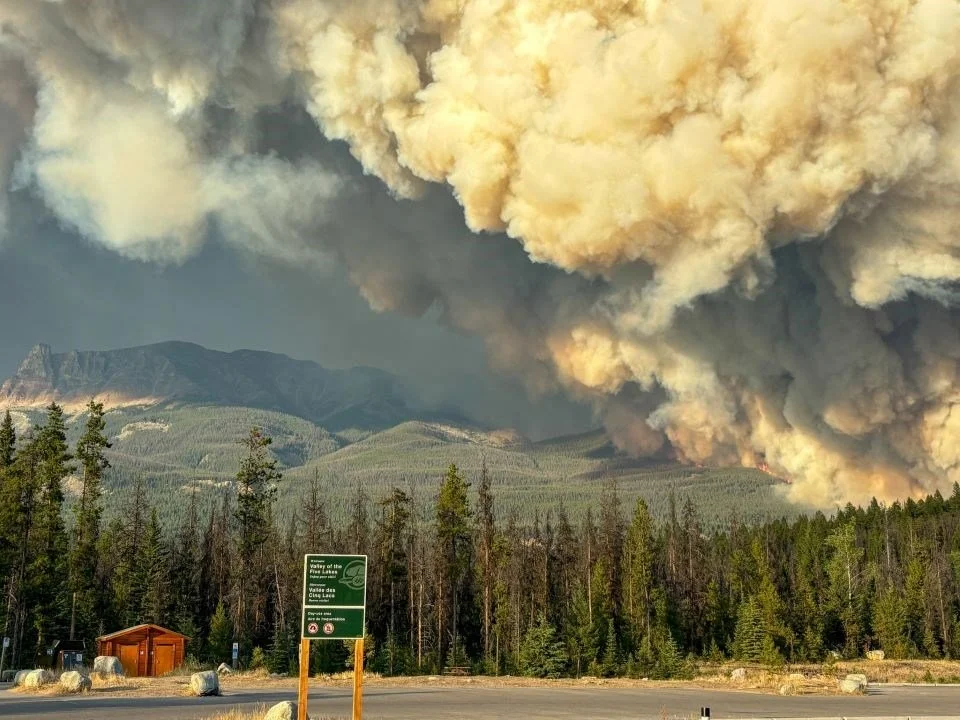Strategic amnesia: Climate risks Canada keeps relearning
Modern-day catastrophes are not a result of unknown risks or a lack of expertise and information, but of institutions that have lost the ability to remember to act on what is known. They are about the failure of institutional memory, otherwise known as “strategic amnesia.”
Who decides care? Governance, funding, and the failures in Canadian health care
A night in the emergency room can reveal the cost of policy decisions made without adequate insight. It is clear that Canada’s health care system needs funding models guided by those who deliver care, not just those who manage budgets.
Scientists urge action as climate thresholds near: How much more evidence do we need before it is too late?
Recent climate data warns the future of our planet hangs in the balance, and that the direction it tips will depend on what governments do in the short-term. Issued as the Dartington Declaration, this warning underscores the urgency for us to rethink how climate science informs decision-making.
A gap between political promises and reality: The state of B.C.’s old-growth forests
British Columbia's forestry sector is now facing a crisis: more than a century of intensive old-growth logging has pushed these forests into a state of peril. A new report commissioned by the Sierra Club BC, highlights how decades of logging, wildfires, and ineffective old-growth deferrals have left the province's primary forests at risk.
The COP of truth? “A moral failure and deadly negligence”
“A moral failure and deadly negligence,” UN Secretary General Antonio Guterres warns, sending a clear message to global leaders on the world's inability to limit global warming during his opening speech at the U.N. COP30 Climate Summit in Belem, Brazil.
Canada at the crossroads: Nation-building or nation-burning?
Canada is at a critical point where today’s choices made surrounding infrastructure, public investment, and policy will determine the country's economic and environmental resilience in the future. Two recent pieces in Corporate Knights make this clear, stressing that these choices will ultimately shape whether we are investing in a sustainable future.
Ireland’s PM delivers powerful UN speech on Gaza calling for action and accountability
In a powerful address to the 80th UN General Assembly, Ireland’s Prime Minister Micheal Martin delivered an uncompromising stance on the ongoing humanitarian crisis in Gaza, directly confronting the internal community with a strong moral challenge: “To do nothing is not neutrality, it is complicity.”
Canada’s climate risk governance gap, 10 years after Carney’s warning
Ten years ago Mark Carney, warned the financial system of the threats of climate risk, underscoring how short-term financial decision-making locks in long-term climate change. Ten years later, the financial sector continue to openly support the expansion of fossil fuel projects, all the while admitting that it is directly fueling the very climate risks which threaten their own business and much more.
Nature Transition Pathways: To protect GDP and meet environmental targets
Declining biodiversity and weakened ecosystems are not just environmental concerns; they are economic risks. The UK for instance, will face a nearly 5% loss in GDP due to the ongoing degradation of nature. Businesses require government guidance and a roadmap to align profit with planetary health - a tool known as nature-positive transition pathways.
Sustainability For All, Not Just For Some: How a Sovereignty Gap is Causing Climate Finance Shortfalls
Our climate finance crisis is not a problem of insufficient funds, but of political will and tax injustice. To address our climate finance shortfalls would require reclaiming tax sovereignty.
Canada Needs a Unified Climate-Information System for a Low-Carbon Economy:
Canada must create a coordinated, standardized climate-information system to replace its fragmented data landscape. Doing so will not only reduce transition costs and improve decision-making, but also accelerate progress toward a resilient, low-carbon economy.
Climate Denial 2.0: ‘All of the Above' Energy Policies are Doing Everything and Achieving Nothing
The “All of the Above” approach to addressing climate change is outdated and inadequate. It is time we call on leaders to reject vague, politically-convincing strategies, in favor of targeted investments that actually offer clear cost-effective paths toward zero emissions.
Is Canada Ready for Climate Change? Audit Reveals Major Gaps in National Adaptation Plan
In 2023, the federal government released the National Adaptation Strategy, positioning it as a roadmap to help Canadians navigate the growing impacts of climate disruption. However, a recent report by the Office of the Auditor General of Canada found the strategy to be poorly designed and ineffective.
Pledges to Progress: A Call for Credible Climate Transition Plans in Canada
As the global economy shifts toward a low-carbon future, credible climate transition plans have become essential. Canada must move beyond climate pledges by embedding transparent, time-bound, and actionable transition plans into business and policy strategies to remain competitive and advance climate progress.
A Crisis in Governance: Global Banks Increase Fossil Fuel Financing Despite Climate Commitments
A new report reveals that the world’s largest banks provided $869 billion into fossil fuel financing in 2024, reversing earlier climate commitments. The findings raise urgent concerns about the failure to meet climate pledges and highlight the need for stronger governance in climate finance.
Obstructing Climate Action: How Climate Misinformation is Fueling Global Catastrophe
According to a new report by the International Panel on the Information Environment, the climate crisis is being dangerously accelerated by a flood of misinformation, creating doubt about the climate crisis and actively obstructing efforts to address it.
Canada’s Climate Adaptation Strategy Falls Short
According to a new report Canada’s long-awaited plan to help communities prepare for the growing impacts of climate change is stumbling, warning that the federal government has failed to design an effective National Adaptation Strategy.
Four Climate Priorities for Canada’s First 100 Days Under PM Mark Carney
As Canada’s new government under Prime Minister Mark Carney takes office, the first 100 days offer a crucial window for bold climate action. From strengthening carbon pricing to finalizing clean energy incentives, here are four policy priorities that can set the stage for a more resilient, low-carbon economy.
Is there any way for governments to lessen the power of those to maintain the status quo?
The Union of Concerned Scientists’ new report, Decades of Deceit, reveals how major fossil fuel companies knew for decades about the climate risks of their products, but chose to deceive the public. The report makes the case for holding these companies accountable for the damage they knowingly caused.
Alberta’s Carbon Price Freeze: A Short-Term Relief or a Long-Term Setback?
Premier Danielle Smith’s decision to cap Alberta’s industrial carbon price at $95 per tonne has drawn sharp criticism from climate policy experts. Critics warn the sudden freeze jeopardizes billions in low-carbon investments and undermines business confidence. While the government defends the move as a measure to protect competitiveness, experts say it creates more instability than relief.



















